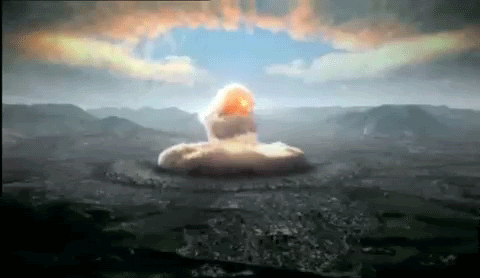The Inclusion Of Bitumen In The Definition Of Petroleum
Bitumen has been incorporated within the purview of the PIB through its inclusion in the definition of petroleum. If enacted with this inclusion, the PIB will be going contrary to the Petroleum Act, which expressly excludes bituminous shales in its definition of petroleum.
The Monitoring Function Of The Nigerian Extractive Industries Transparency Initiative ('NEITI')
The PIB under Section 4 specifically provides that all agencies and companies established pursuant to it shall be bound by the NEITI Act 2004. Section 190(6) goes further to spell out the function of NEITI under the PIB, which is to monitor bids for contracts, licenses and leases received and also ensure that bids are processed in accordance with the published guidelines to achieve transparency and accountability.
The Enlarged Role Of The Minister Of Petroleum Resources
Under the PIB, the Minister of Petroleum Resources ('Minister') has several new responsibilities, some of which include the formulation and monitoring of petroleum policy; the negotiating and implementing of international petroleum treaties and agreements with other countries or agencies on behalf of the government; and advising the President on appointments of chief executives of all companies and agencies established pursuant to the Act.
The Minister is also empowered to grant all upstream sector licenses, which include the Petroleum exploration license, Petroleum prospecting license and the Petroleum Mining lease. Notwithstanding the foregoing, the President is equally empowered by the PIB to grant other licenses and leases.
Additionally, the PIB extends the current requirement of the consent of the Minister by a licensee, lessee or contractor before the assignment of their right or a part of their right, to include mergers, acquisitions, concessions and exchange of shares in their companies.
The Introduction Of The 'Inquiry' Process
Notwithstanding the PIB empowering the Minister to make regulations necessary to give effect to the provisions of the PIB, the Minister is expected to conduct an inquiry on the subject matter of any proposed regulations.
The Minister shall take into consideration the findings of the inquiry in making the relevant regulation, however based on any prevailing circumstances, the Minister may make a regulation without an inquiry. Although such regulations made without an inquiry can only have a life span of 12 months from its commencement date, unless confirmed by an inquiry.
Licenses And Leases
The PIB altered the names and durations of the petroleum industry licenses and leases as provided under the Petroleum Act.
With the passage of the PIB, the Oil Exploration Licence ('OEL'), the Oil Prospecting Licence ('OPL') and the Oil Mining Lease ('OML') shall be known as Petroleum Exploration Licence ('PEL') Petroleum Prospecting Licence ('PPL') and Petroleum Mining Lease ('PML') respectively.
Under the Petroleum Act, the OEL is granted for a period of one year with an option to renew for one further year and an application for renewal to be made 3 months before
expiration. However under the PIB, the PEL is to be granted and valid for not more than 3 years.
Additionally, under the PIB the PPL is to be granted for a period of not more than 5 years with respect to onshore and shallow waters, comprising an initial exploration period of 3 years and a renewal period of 2 years. For deep waters areas and frontier acreage, the PIB is to grant a period not more than 8 years, comprising an initial exploration period of 5 years and a renewal period of 3 years. This will be a departure from the provisions of the Petroleum Act wherein an OPL is granted only for a period not exceeding five years, inclusive of the renewal period.
Furthermore, under the PIB the PML is granted for a maximum period of 20years as against the grant for 25 years under the Petroleum Act. It is usually granted in areas where crude oil, natural gas and bitumen have been found in commercial quantity.
The PIB provides that where a PML is derived from a PPL, the licensee shall be allowed to use up its initial renewal and appraisal period such that the PPL for onshore and shallow waters shall run for an overall period of 27 years. While that of deep water areas and frontier acreages shall run for an overall period of 30years. Likewise where the PML is granted for a Petroleum Prospecting licence PPL that is yet to expire, the term of the PML shall be the mandatory 20years period in addition to the remaining term of the PPL.
The New Tax Regime
- IMPOSITION OF A NIGERIAN HYDROCARBON TAX ('NHT') FOR COMPANIES ENGAGED IN UPSTREAM PETROLEUM OPERATIONS
Section 299 of the PIB introduces the NHT which shall be levied upon the profits of each accounting period of any company engaged in upstream petroleum operations for that period. This new tax seems to replace the Petroleum Profits Tax.
Additionally, Section 327(1) of the PIB proposes that companies eligible for the NHT self-assess for the NHT due and pay the required tax amount within 21 days of filing the assessment.
- COMPANIES INCOME TAX ('CIT') MADE APPLICABLE TO COMPANIES ENGAGED IN UPSTREAM PETROLEUM OPERATIONS
The PIB proposes the payment of CIT by Companies engaged in upstream petroleum operations. Companies involved in both upstream and downstream petroleum operations shall determine their CIT for each sector separately. The PIB also goes further to amend some provisions of the CIT Act in order to make this provision effective.
- EXEMPTION OF DIVIDENDS FROM FURTHER TAX
According to the PIB any dividend paid out by a company from profits on which Petroleum Profit Tax has been paid, is exempted from further tax.
The PIB provides for the payment of royalties but does not specify the basis and percentage of royalties to be paid. However the Minister of Petroleum Resources is empowered to make regulations in this regards.
- TAX RETURNS AND ASSESSMENTS
The PIB under sections 317 provides that every company including contractors under the production sharing contract arrangement shall be responsible for reporting their own upstream operations such as profits, outgoings, expenses and more importantly to pay tax chargeable on their upstream petroleum operations. Thus with the commencement of the PIB, parties under a production sharing contract arrangement shall file separate tax returns in respect of their respective interests in the concession.
Likewise the PIB provides as a requirement under sections 322(3) that companies yet to commence bulk sale or disposal of chargeable oil and gas shall submit their audited accounts and returns to the tax authority. In the case of a newly incorporated company, it has to be within 18months from the date of incorporation and for companies already in existence, within 6 months after any period ending the 31st of December of the following year.
Under section 327 the PIB also introduced the concept of self- assessment. It provides that every company liable to file tax returns shall file self- assessment returns within the specified period, showing the tax payable by the company for the accounting period.
The New Environmental Regime
- INTRODUCTION OF ENVIRONMENTAL QUALITY MANAGEMENT PLAN
The PIB introduces the submission of environment management plan by all licensees and lessees engaged in petroleum upstream operations within a period of one year after commencement of the PIB or three months after the grant of the licence or lease.
The environment management plan shall contain the licensee's or lessee's environmental policy, objectives and targets as well as their commitment to comply
with the relevant laws, regulations, guidelines and standard as approved by the Inspectorate.
The environment management plan shall establish the following:
I. Initial baseline information or program affecting the environment to determine protection, remedial measures and environmental management objective.
II. Investigate assess and evaluate the impact of the licensee or lessee exploration and production activities on the environment and the socio economic conditions of any person who might be directly affected by the upstream petroleum operations.
III. Develop environment awareness plan to inform employees of any environment risks in order avoid pollution of the degradation of the environment.
IV. Described the manner by which the licensee or lessee intends to comply with any prescribed waste management standards or practices
V. Contain or remedy the cause of pollution or degradation and migration of pollutants
VI. Modify, remedy. Control or stop any action, activity or process which causes pollution or environmental degradation.
- ESTABLISHMENT OF GAS FLARING PENALTIES
The PIB provides that natural gas shall not be flared or vented after a 'flare-out-date' which will be provided via regulation by the Minister. However the Minister is empowered to grant permits for not more than a hundred days to any licensee or lessee to flare or vent gas where it is a start-up operation, cases of equipment failure, shut down and flaring due to inability of gas customers to off-take gas.
Any licensee or lessee who flares or vent gas without the permission of the Minister shall be liable to pay a fine which shall not be less than the value of the gas flared.
Additionally, the PIB provides that a licence or lease for the production of oil and gas whether onshore, offshore or deep water shall not be granted to any applicant unless applications for such a licence or lease is accompanied by a comprehensive programme acceptable to the Minister for the utilization or reinjection of natural gas
 White man dont like to be tol what to do by black people.
White man dont like to be tol what to do by black people.  White man dont like to be tol what to do by black people.
White man dont like to be tol what to do by black people. 




 Plus if multibillion dollar companies couldn't deal with the oil theft what are local industries going to do? At best, maybe they can pay all the theives off, but that will put them at a disadvantage. Then again, Russia, the Middle East and other places all have big infrastructure problems...
Plus if multibillion dollar companies couldn't deal with the oil theft what are local industries going to do? At best, maybe they can pay all the theives off, but that will put them at a disadvantage. Then again, Russia, the Middle East and other places all have big infrastructure problems...


 ) talk about nigeria has to play invite "foreign investment" (hire 3 nigerians and evade paying taxes) but as soon as the homie jonathan tells them
) talk about nigeria has to play invite "foreign investment" (hire 3 nigerians and evade paying taxes) but as soon as the homie jonathan tells them

